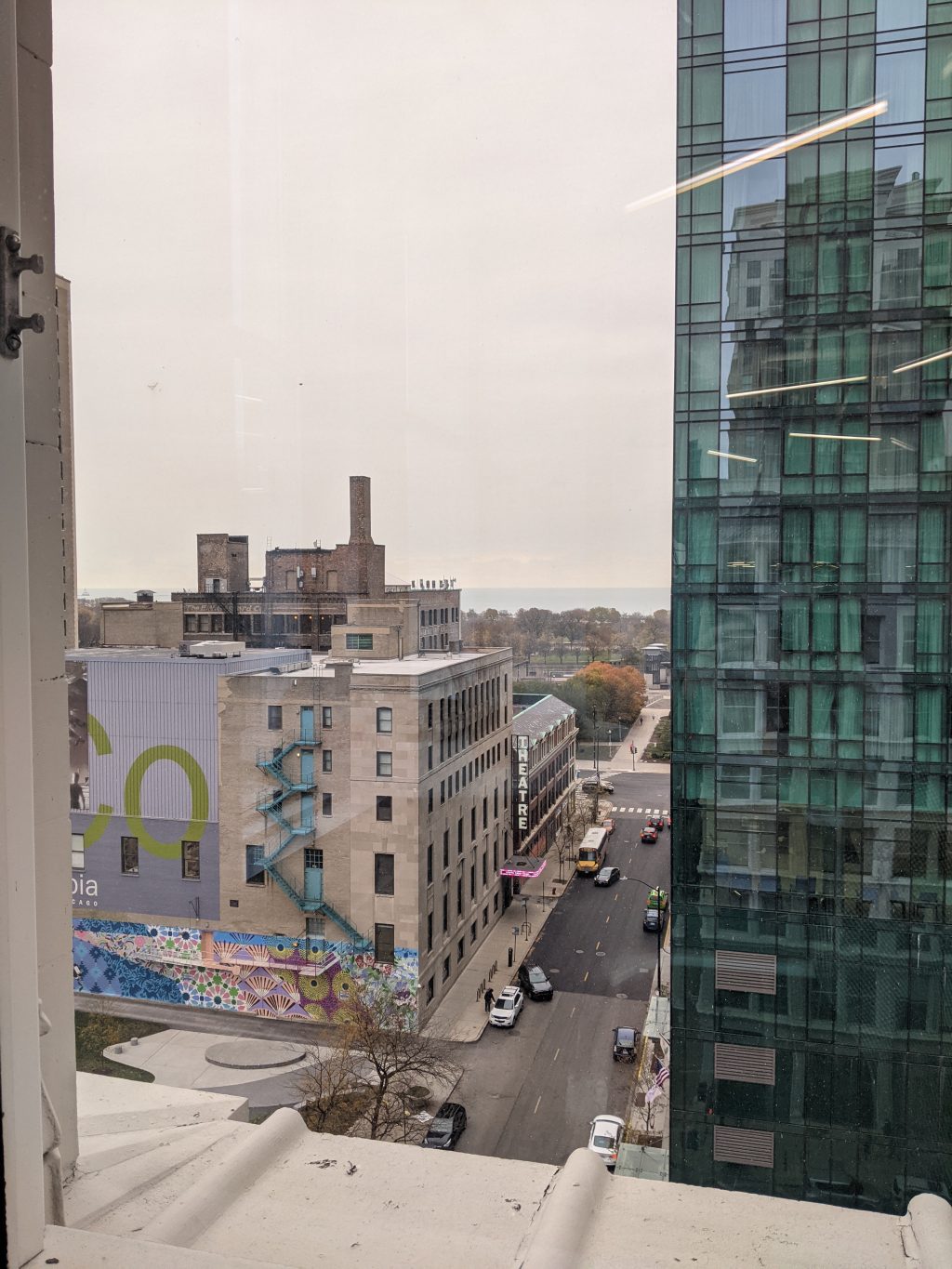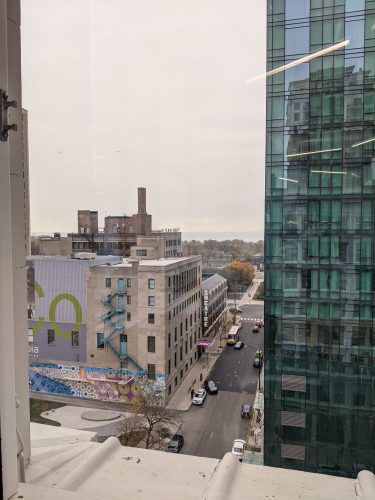
Learning How to Cross the Street Again

The view from the 8th floor of 1104 S. Wabash Ave. is enough to trigger vertigo, but once you get past that, the view of the city — of the Lake — is breathtaking.
I think I learned when I was 4 or 5 to look both ways and hold my father’s hand until I was strong enough to carry myself purposefully across the road. In Chicago, I was forced to learn anew. Apparently, drivers don’t take kindly to those who are just following the demands of the crosswalk.
When crossing a Chicago intersection, one must look left, right, forwards, backwards and maybe even up in the air. A walk signal is merely a suggestion; a stop sign is disregarded. Never dare to sneak a peek at one’s phone while crossing. Once, I almost walked directly into the side of a car that had turned in front of me, (and almost into me). I had been responding to a Canvas message from a student in a course where I was the teaching assistant. “The syllabus is on the course page under the header “Syllabus,” would have been my last words. In many ways, graduate school has been a lot like learning to cross the street again. What I thought would be just another extension of my undergraduate experience has turned out to be so vastly different in numerous ways. In my first class, students listed off various authors and stories as examples to help further our discussion. Having no idea what they were talking about, I panicked, thinking there was reading I missed. “Oh no,” said a peer when I asked her, “I’ve read that book years ago, I just remembered that it tied in really nicely with what we were talking about.” I didn’t know that one could themselves be a wealth of knowledge. I didn’t even know you could read for fun, let alone read Clarice Lispector for fun.
Each semester is like learning how to cross the street again, and while, at times, this may seem daunting – it’s really the gift of life. While that may seem a little dramatic, graduate school gives us the permission to be a student of life again. I know a lot, I made it here after all, but there’s definitely a lot I still don’t know. In writing and in life, my advice is always to lean into the unknowing. A professor once told me that you’re writing to discover: if you have everything figured out already, why commit it to paper? If there’s anything writers hate doing, it’s writing. We write because we have to — in my case, especially in the case of nonfiction, I write because I’m trying to figure something out. I approach epiphany in my writing but never achieve it because they are few and far between in life and I’m in the business of life.
Oftentimes in workshop, my peers will hear me suggest letting their piece become messier. I’m often impressed by the amount of polished pieces I read in workshop, but I will always suggest doing away with a clean narrative arc, button endings, or satisfying epiphany. This is feedback I’m still learning, too. Each semester, I feel like I know how to write a really good essay, yet by the end of the semester, I think that I don’t know what I’m doing at all. The cycle repeats, but each time I get closer to really saying what I’m trying to say: writing what I want to write. It’s a frustrating process, this doing and undoing, knowing then unknowing then relearning — but the journey is an exciting one and one that I look forward to continuing each semester.
